Vedas and Monotheism

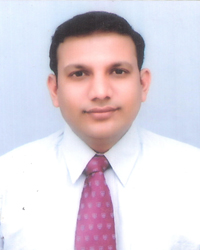
Author
Dr. Vivek AryaDate
27-Jun-2017Category
ArticleLanguage
EnglishTotal Views
6199Total Comments
0Uploader
RajeevUpload Date
27-Jun-2017Download PDF
-0 MBTop Articles in this Category
I found western writers quoting that Swami Dayanand and Aryasamaj learned the very idea of Monotheism i.e. there is only one God from Christianity. They also says that the Vedas support Polytheism means worship of multiple God. The latest entry in in this list of Koenraad Elst. He published an article on Monotheism and its relation to swami Dayanand. He assumes that Swami Dayanand is influenced from the monotheism in Christianity and Islam. That’s why he tried to interpret Vedas as supporter of Monotheism.
Koenraad Elst writes...
Is there a Vedic monotheism? The occasion for this paper on monotheism and its presence or absence in Hinduism is an upsurge in the Arya Samaj long-standing campaign to convince Hindus of the superiority and Vedic basis of monotheism.
Unfortunately, in its opposition to the predatory religions of Islam and Christianity, it interiorized some of their beliefs and attitudes. Foremost among these was the assumption that monotheism, the belief in a single God annex the condemnation of all worship offered to any being but Him, is the supreme form of religion. Hence, the Arya Samaj decreed that the Vedic religion had always been monotheistic, so that Islamic and Christian missionaries had nothing to teach the Vedic’s about the true religion of the One God. If Hinduism now seemed like the polytheistic religion par excellence,this was partly due to post-Vedic degenerative developments and partly to textual misinterpretation of the seemingly numerous god-names in the Vedas. In reality, or so the Arya Samaj claimed, these many gods were only different faces of the One God.
This monotheistic reinterpretation of the Vedas could be excused as a tactical device useful in the Arya Samaj main struggle, viz. against the predatory monotheistic religions.
Ref-Koenraad Elst, online essay Hindus and Monotheism
There is nothing new in the views of Koenraad Elst. Many Christian missionaries had authored similar views. Hervey De Witt Griswold in The Religion of the Rigveda, Christophe Jaffrelot in Religion caste and politics in India, John Campbell Oman in Cults, Customs and Superstitions of India have quoted in similar way.
Interestingly most of them merely copied each other. Truth is that they never tried to to do the in-depth study. Whether what they have embodied in these volumes is wholly true and nothing but true or their verdicts are to be accepted at once as gospel truths, a critical and unprejudiced student of history alone can judge. Some of the authors have no courage to wipe the dust of prejudice from their eyes and have obliged to draw hasty conclusions and wrong inferences. Such writings have done more harm than good.
John Campbell Oman in his book devoted one chapter to Aryasamaj in his book.
He writes
The theistic reforms now agitating India bear the unmistakable stamp of Christian influence and of English political and social ideas and principles.
Analysis of his claim
1. Perhaps this may be true of the Brahmo samaj but to say that the Aryasamaj is the product of Christian influence and English political ideas reminds me one of some grand old lady who attributed the dawning of the day to the crowing of the particular cock reared by her.
2. Swami Dayanand the reviver of the Vedas was not familiar with the English language. Interestingly none of his biographies says so. So this assumption that Swami ji studied western indologists and established his Vedic beliefs after drawing inspiration from west can never be proved.
3. The principle of sociology enunciated by swami Dayanand are essentially Vedic in character and purely classical in character. The system of polity advocated by him is based entirely upon Manu and other smritikars. The system of philosophy and ethics is the system preached and practiced by Kanada and* Kapila*. Everywhere whether he speaks of the system of education or of the laws of society, he quotes freely from Patanjali, Gautama and Manu and never Miller or Spenser of other Western scholar. Swami Dayanand in his work Rigvedadibhashyabhumika *or The Introduction to the Commentary of the Vedas says that the western scholars like *Maxmuller are hardly incapable of understanding the deep meanings of the Vedic mantras as knowledge of Sanskrit language is in primary stage.
4. Swami Dayanand condemned idolatry upheld the worship of one god, not because Christianity held similar beliefs but because it was the only rational form of worship sanctioned by the* Vedas* and the Upanishads.
5. Even the Ten principals of the Aryasamaj do not bear the unmistakable stamp of Christian influence. The tenth principle –“in matters which affect the general social well being one ought to discard all differences and not allow his individuality to interfere but in strictly personal matters every one may have his own way.” Is derived from the Vedic mantra “सà¥à¤µà¤¸à¥à¤¤à¤¿ पनà¥à¤¥à¤¾à¤®à¤¨à¥à¤šà¤°à¥‡à¤® सूरà¥à¤¯à¤šà¤¨à¥à¤¦à¥à¤°à¤®à¤¸à¤¾à¤µà¤¿à¤µ”- The Rig Veda.
6. Mr Oman relying upon the observations of Professor Maxmuller and Monier Williams find many inconsistencies in the Vedic Hymns and is inclined and is unwilling to accept that the Vedas treat of Monotheism.
How can anyone ignore the straightforward meaning of Vedic mantra speaking of One God or Monotheism?
I am quoting here few mantras speaking about Monotheism in the Vedas.
**Yajurveda 40.1: **
This entire world is embedded within and managed by the *One and Only One Ishwar*. Never dare do any injustice or desire riches through unjust means. Instead follow the righteous path and enjoy His bliss. After all **He alone **is source of all bliss!
**Rigveda 10.48.1: **
*Ishwar alone* is omnipresent and manager of entire universe.* He alone* provides victory and eternal cause of world. All souls should look up only to Him in same manner as children look up to their Father. *He alone* provides for our sustenance and bliss.
**Rigveda 10.48.5**
*Ishwar enlightens the entire world. He is undefeated and undying. **He alone* is the creator of the world. All souls should seek bliss through seeking knowledge and acting there upon. They should never shun the friendship of Ishwar.
**Rigveda 10.49.1**
Ishwar alone provides true knowledge to truth seekers. *He alone* is promoter of knowledge and motivates virtuous people into noble actions to seek bliss.* He alone* is the creator and manager of the world. Hence never worship anyone else except *one and only Ishwar.*
**Yajurveda 13.4**
*There is **one and only One Creator* and Maintainer of the entire world. *He alone **is sustaining the earth, sky and other heavenly bodies. He is Bliss Himself! **He alone* deserves to be worshiped by us.
**Atharvaveda 13.4.16-21**
*He is neither two, nor three, nor four, nor five, nor six, nor seven, nor eight, nor nine, nor ten. He is, on contrary, **One and Only One. There is no Ishwar except Him. All devtas reside within Him and are controlled by him. So **He alone* should be worshiped, none else.
***Atharvaveda 10.7.38
**Ishwar alone *is greatest and worth being worshiped. He is the source of all knowledge and activities.
**Yajurveda 32.11**
*Ishwar resides at each point in universe. No space is devoid of Him. He is self-sustaining and does not need help of any agent, angel, prophet or incarnation to perform His duties. The soul which is able to realize this **One and only One Ishwar* achieves Him and enjoys unconditional ultimate bliss or Moksha.
So, on the basis of above logic and reference’s from the Vedas its proved that the *Vedas speaks of only one God.*
The interpretation by Mr. Oman is often quoted by other authors. They simply misinterpret the concept of Monotheism. Most probably they were influenced by their Biblical upbringings. Mr. Elst repeated the same mistakes as done by his predecessors.
*Overall Vedas speaks of worship of only and only one God*




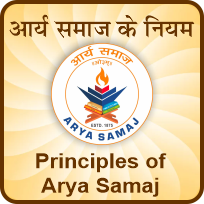







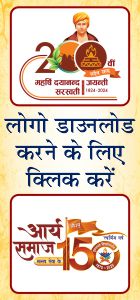
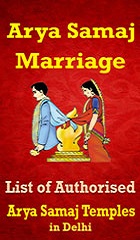
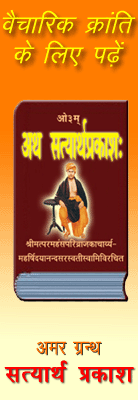

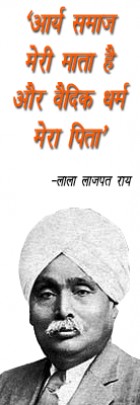
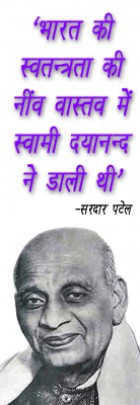
ALL COMMENTS (0)